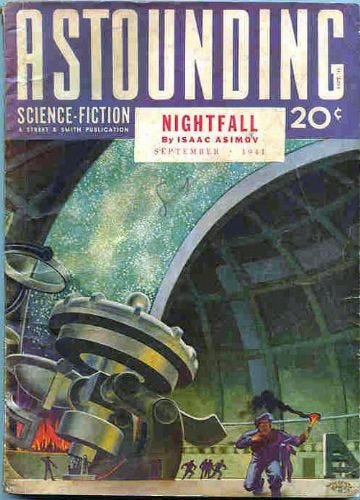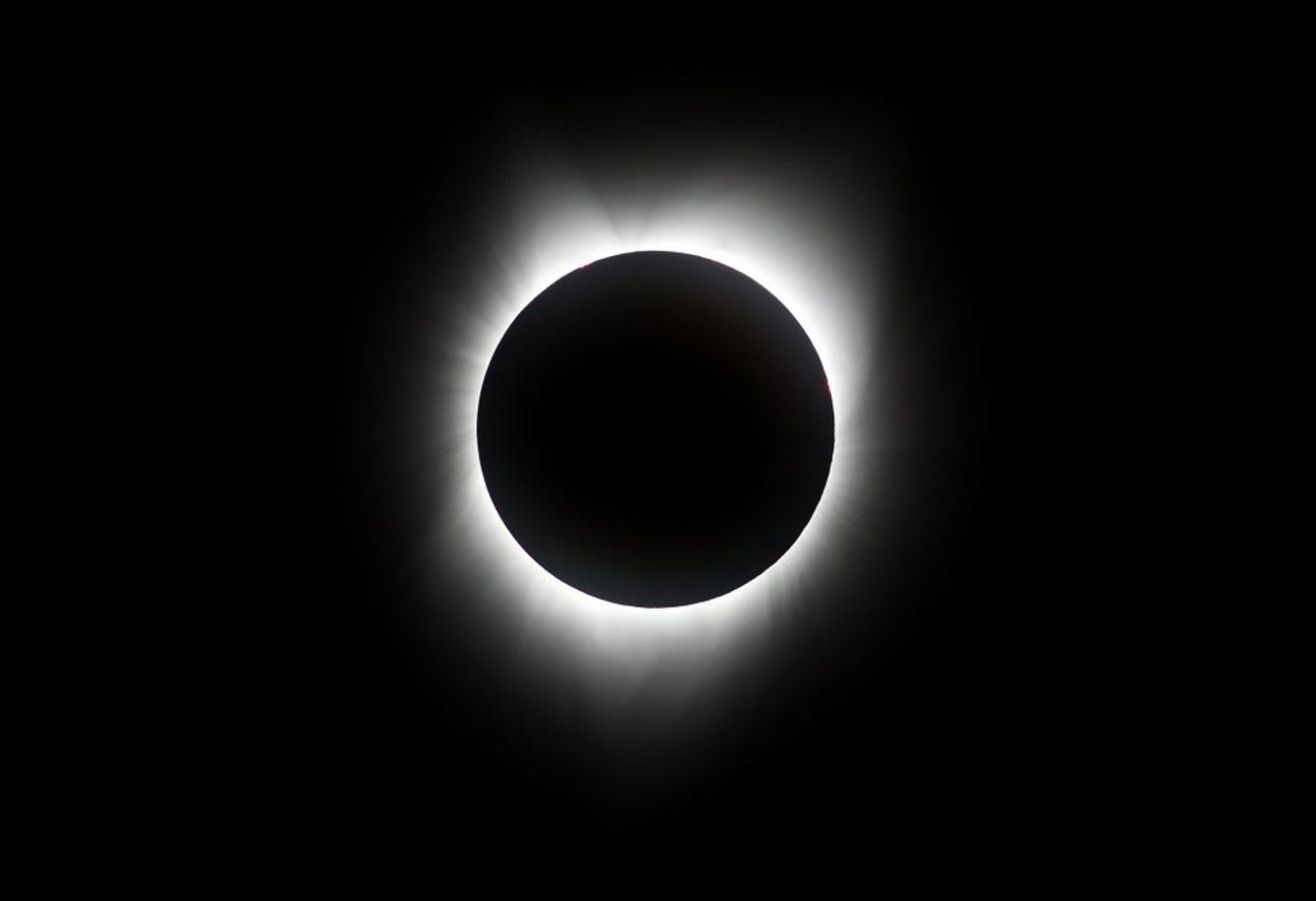On April 8, 2024, a total solar eclipse is set to cross North America. I’m one of the fortunate ones to live in the path of totality and excitement has been steadily mounting for the event. Estimates vary based on specific geographic coordinates but generally scientists have calculated that the eclipse will last for approximately four minutes for those in the path of totality.
This means the sky will become dark, as at dawn or dusk. Weather permitting, the sun's corona, usually obscured by the bright sun, will be visible. Seasoned eclipse experts have shared that the rare event feels “fleeting” and “otherworldly”.
Now imagine we lived in a world of multiple suns and constant daytime, such that darkness falls only once every 2000 years. Such is the premise of the classic 1941 science fiction story “Nightfall” by Isaac Asimov.
“Nightfall” explores the tension in society when faced with the gaps in our scientific knowledge and an impending, not fully understood celestial phenomenon. For most of the characters on the story’s planet Lagash, the eclipse is not an event to experience in celebration, but one of existential dread, with scientific evidence showing that previous eclipses on the planet led to the collapse of civilization by fire. Doomsday cultists are also present in the story, and prophesize that the coming nightfall would bring stars that would rain down fire and turn people into beast-like savages.
Asimov notes in his autobiography that the inspiration for “Nightfall” came from an Emerson quote shared by Astounding Science Fiction editor John W. Campbell.
He had come across a quotation from an eight-chapter work by Ralph Waldo Emerson called Nature. In the first chapter, Emerson said “If the stars should appear one night in a thousand years, how would men believe and adore, and preserve for many generations the remembrance of the city of God?”
Campbell asked me to read it and said, “What do you think would happen, Asimov, if men were to see the stars for the first time in a thousand years?”
I thought and drew a blank. I said “I don’t know.”
Campbell said, “I think they would go mad. I want you to write a story about that.”
”Nightfall” climaxes as darkness begins to fall … “a crimson glow began growing, strengthening in brightness, that was not the glow of a sun. The long night had come again.”





